8 Reasons Why Your Budgie Keeps Bobbing Their Heads
Budgies are beautiful little birds used for decorative purposes. However, some of their gestures are often misunderstood, such as head bobbing. Let’s find out why budgies bob their heads.
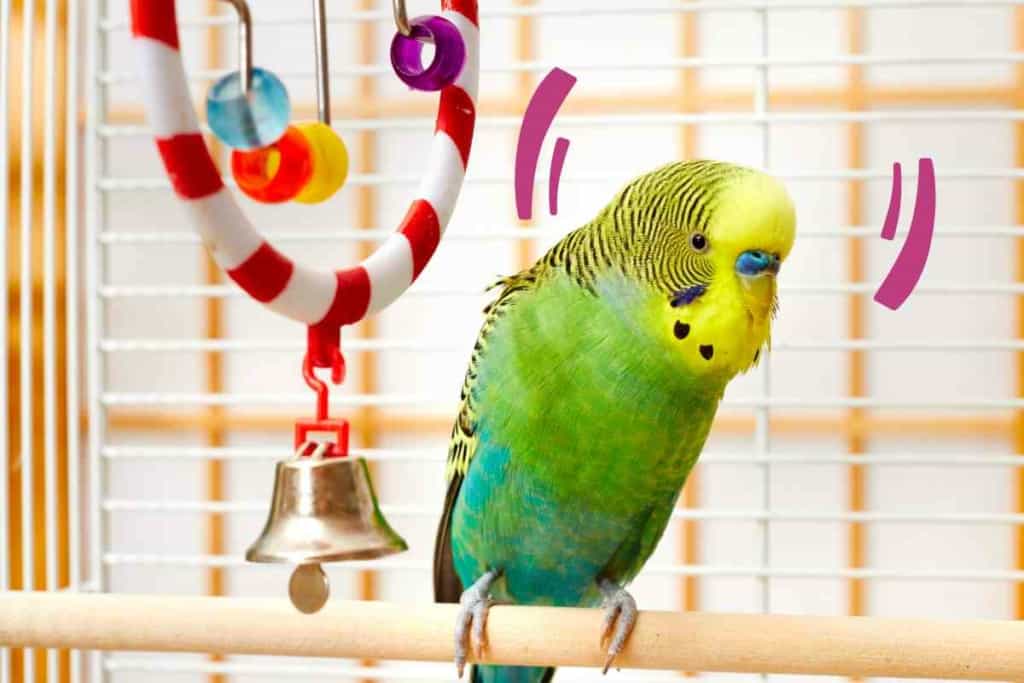
Why Do Budgies Bob Their Heads?
There are several reasons why budgies bob their heads. Sometimes, it’s due to boredom, while sometimes, they just want attention. It also happens when they are hungry. Head bobbing is also a sign of territorial aggression. Lastly, head bobbing is also a mating dance to attract a potential partner.
As bird experts, we have put together this article. In the following paragraphs, we will explain all the scenarios that compel budgies to bob their heads.
So, the next time you find your little bird bobbing their heads, you will be able to respond better.
Why does my bird keep bobbing his head?
Boredom
When a budgie starts bobbing its head, it might seem adorable at first. However, this behavior can actually be a sign of boredom.
In the wild, budgies spend much of their time foraging and building nests, but in captivity, they often lack stimulating activities. Fortunately, there are several ways to deal with a bored budgie. Providing them with toys and objects to chew on can give them something to do.
Incorporating perches or swings into the cage can also add variety to their environment. Placing mirrors and offering social interaction with people or other birds can also stimulate your feathery friend.
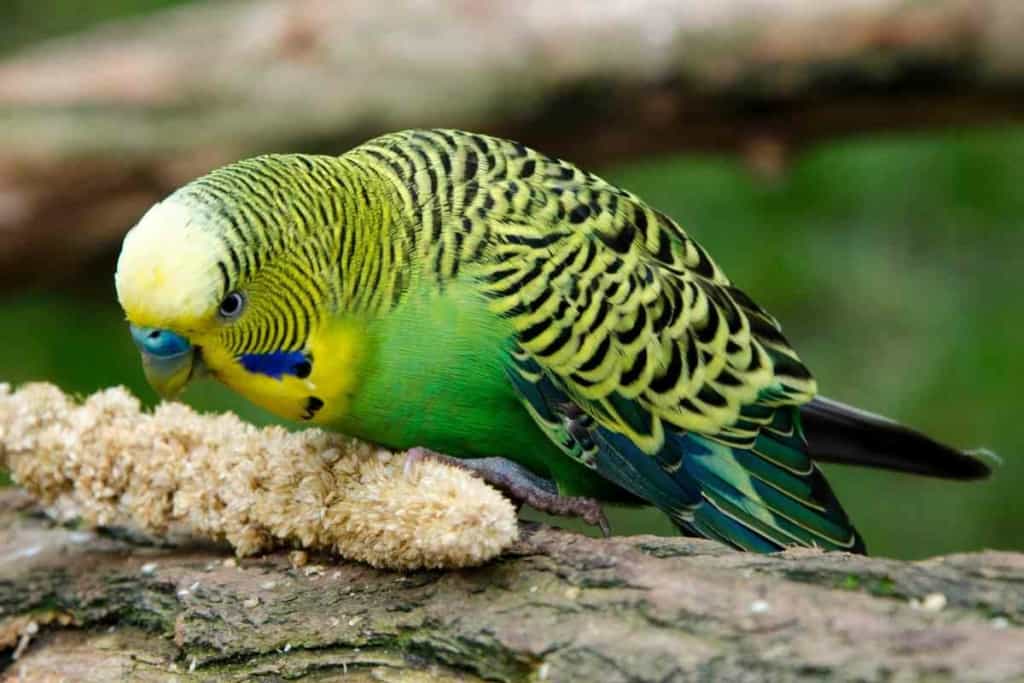
Hunger
Head bobbing is one of the most recognizable signs that your budgie is feeling hungry. This behavior usually starts out slow but can quickly increase in speed and intensity if not addressed.
It’s important to note that there are other signs that your budgie may be feeling peckish. These include an increased interest in food, an exaggerated begging posture, and verbalizing their hunger through chirps or other vocalizations.
In order to prevent your budgie from becoming excessively hungry, it’s best to provide them with a constant supply of fresh food and ensure they have access to it throughout the day.
Dancing
If you’ve ever owned a budgie, you may have noticed that they love to bob their heads back and forth. While it may seem cute or even comical, this behavior actually indicates that the budgie is dancing.
In fact, budgies are known to be some of the most enthusiastic dancers in the bird world. So why do budgies dance? Research has shown that budgies respond to acoustic rhythms with their dance moves, such as music or even human speech patterns.
Like humans, budgies also seem to enjoy dancing and will often choose to “bob” their heads even without any external stimuli.
Attention Seeking
Many budgies have a habit of bobbing their heads, often accompanied by chirping or other sounds.
While this behavior can simply be a sign of excitement or joy, it is also commonly used as a way for the bird to get attention from its owner.
Other signs that your budgie may want attention include fluffing up its feathers, moving closer to you, or even gently pecking at you. It’s important to provide opportunities for social interaction and playtime with your budgie, as this helps to enrich their environment and strengthen the bond between bird and owner.
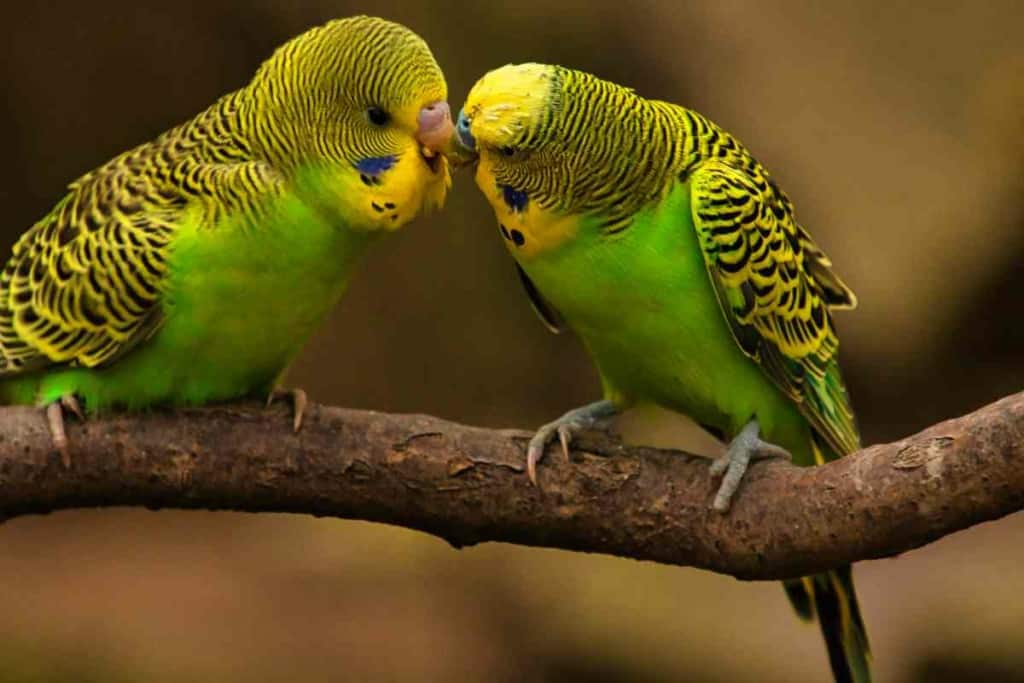
Territorial Aggression
While budgies are known for their cheerful chirping and charming tame behavior, it’s important to understand that they can also exhibit territorial aggression.
Head bobbing is one of the signs that a budgie may be feeling aggressive towards other birds or even human companions.
Other indications of territorial aggression in budgies can include puffing up their feathers, flapping their wings, biting, and jumping from perch to perch. In severe cases, they may even attack other birds or humans.
Fortunately, there are steps that can be taken to address this behavior, such as providing enough space and ideal living conditions, keeping them mentally stimulated with toys and activities, and avoiding or managing conflict within the flock.
Illness
One of the most common reasons why budgies bob their heads is because they are ill. This behavior, also known as “head shaking,” can be a sign that your bird is experiencing discomfort or pain.
Along with head bobbing, other signs of illness in budgies can include fluffed-up feathers, loss of appetite, and lethargy. If you notice your budgie exhibiting any of these symptoms, it’s important to take them to a veterinarian as soon as possible for a proper diagnosis and treatment plan.
While head bobbing alone may not necessarily indicate illness, it’s better to err on the side of caution and have your budgie checked out by a professional.
By recognizing these warning signs and seeking help early on, you’ll give your feathered friend the best chance at a speedy recovery.
Stress
When a budgie bobs its head, it is often a sign that the bird is feeling stressed. This behavior may also be accompanied by other cues, such as hunching of the body and movements back and forth on the perch.
In these cases, it’s important to assess the bird’s environment and determine what could be causing this stress. Loud noises, overcrowding, or lack of enrichment can all contribute to a budgie feeling anxious.
Taking steps to address these potential stressors can help reduce or eliminate head bobbing as well as other concerning behaviors.
It’s important to monitor our feathered friends and make sure they are in a happy, comfortable environment.
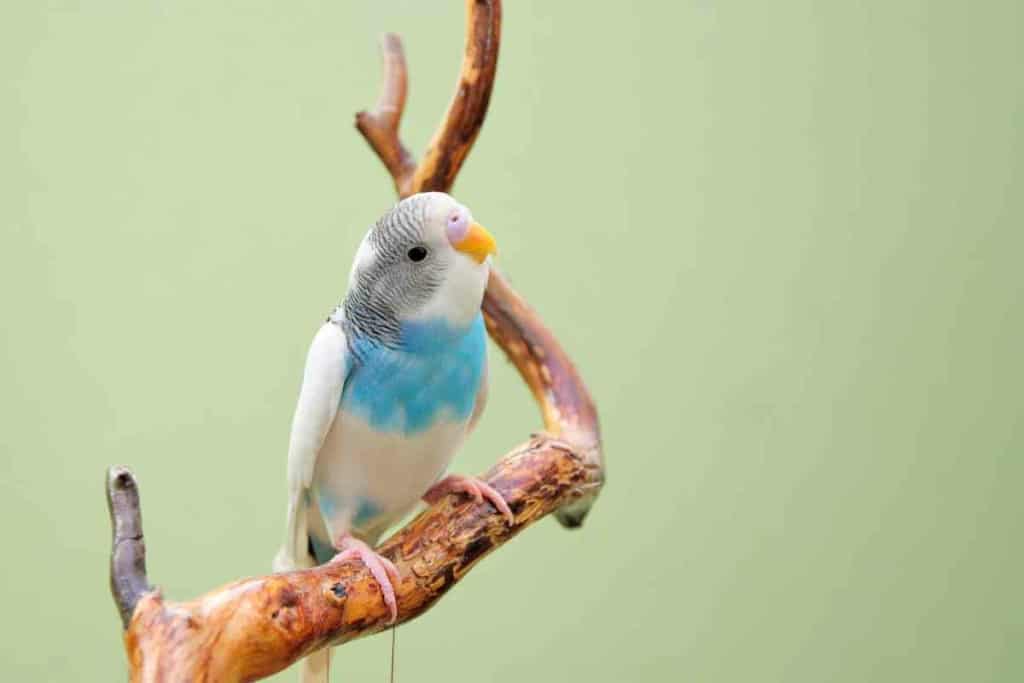
It’s a Mating Dance
Many people may think that the head bobbing often seen in budgies is just a silly habit, but in fact, it serves an important purpose in mating behavior.
When a male budgie performs his mating dance, he will bob his head up and down rapidly while singing and fluffing his feathers. This display is meant to attract a female mate and show off his fitness as a potential partner.
Though it may seem like a cute quirk to us, the budgie’s head bobbing is actually an essential part of mating and reproducing.
So the next time you see your budgie bobbing its head, remember that it could be trying to find a mate!
How Do You Know If Your Budgie Is Unhappy?
While budgies are small and seemingly low-maintenance pets, they still have emotional needs and can become unhappy just like any other pet. Here are five signs to look out for if you suspect your budgie is unhappy:
- A lack of vocalization or a change in their tone of voice. Happy budgies will chirp and sing enthusiastically; an unhappy bird may be quiet or have a more subdued tone.
- Aggressive behavior such as biting or excessive feather-plucking can indicate stress or dissatisfaction with their living situation.
- Changes in appetite, such as sudden weight loss or refusal to eat certain foods, can signal unhappiness or illness.
- Poor hygiene, including messy feathers or an unclean bottom, can also be signs of distress.
- A lack of energy or interest in playing and interacting with you may indicate that your budgie is feeling unhappy in its current environment.
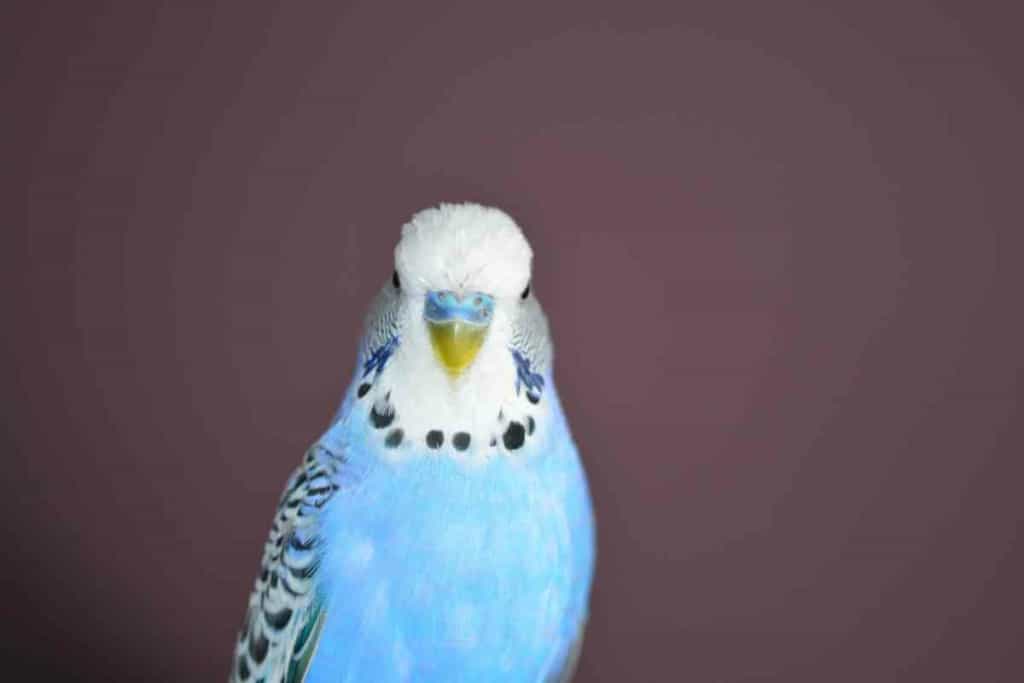
How Do You Know If Your Bird Trusts You?
When it comes to budgies, trust is a huge component in building a strong bond with your feathered friend. So how can you tell if your little budgie trusts you? Here are five signs to look out for:
- Your budgie allows you to pet and hold them without resistance.
- Your budgie flies to you willingly or seems happy to hang out with you.
- It eats out of your hand or nibbles on treats while sitting on your finger or shoulder.
- Your budgie has reduced signs of stress, such as frantic flying or hiding behaviors.
- It voluntarily goes back into the cage when it’s time for bed instead of trying to escape.
Are Female Budgies Bossy?
When it comes to budgies or parakeets, several factors can influence their behavior, including genetics and individual personality.
While some female budgies may be more assertive and dominant, this trait is not exclusive to female birds.
Male budgies can also exhibit bossy behavior, especially if they are the only bird in a household. However, in a flock with multiple birds, a hierarchical pecking order may develop with a dominant bird leading the pack.
That dominant bird could be male or female. Generally speaking, budgies are social animals that do well in pairs or small groups, so introducing additional birds into the household may help to diffuse any overly aggressive behaviors.
Ultimately, whether male or female, each budgie should be treated as an individual with their own unique personality traits.
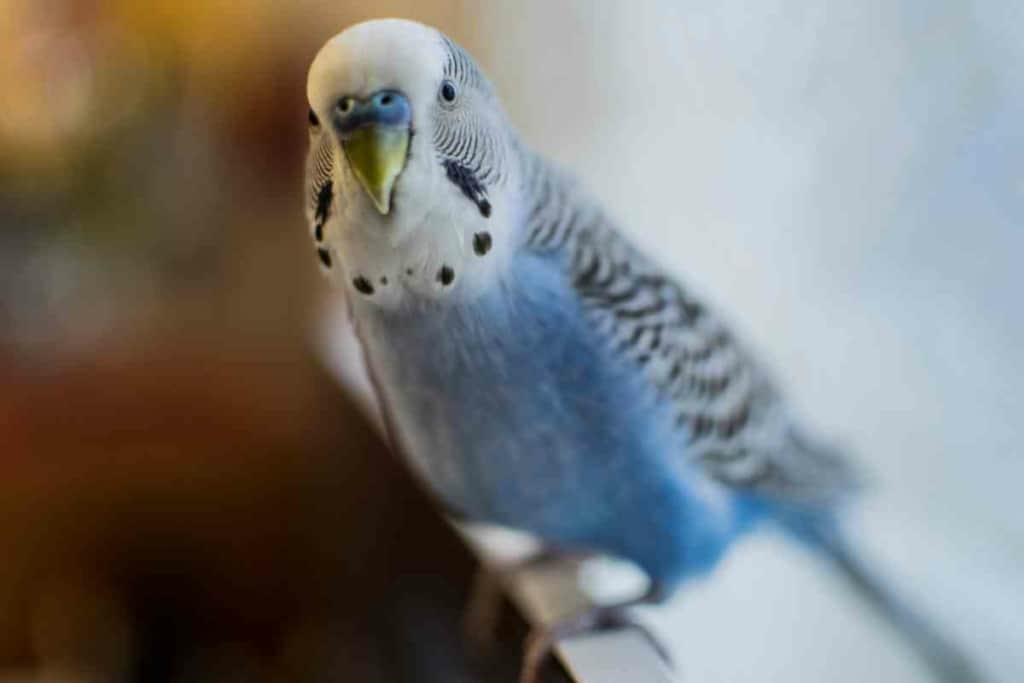
Key Takeaways
- One possible explanation is that they’re happy and want to express their excitement..
- Head bobbing may indicate stress or discomfort in the bird’s environment.
- Boredom can also lead to excessive head bobbing, so it’s important to ensure your budgie has enough toys and enrichment.
- Lastly, aggressive territorial displays are sometimes accompanied by vigorous head bobbing.
